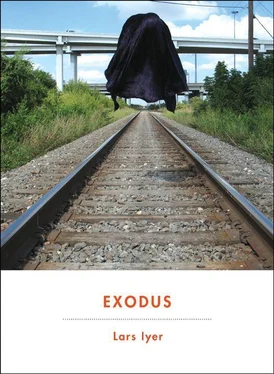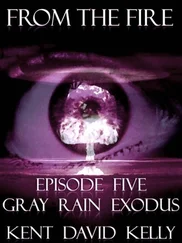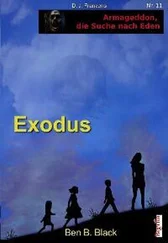Canadians leave their doors unlocked in the frozen north, W. says. They leave their hearts open! The law of northern hospitality means that you have to take anyone in who knocks at the door. ‘ The stranger who dwells among you shall be to you as a home-born, and thou shalt love him as thyself ’: that’s what is written on Canadian walls.
You can know nothing of human society until you stamp the snow from your boots in a Canadian hallway, W. says. Until you’ve clinked glasses with your Canadian hosts. The storm gathers outside; but you sit warm by the fire. The snow lies deep; but you drink and sing with your Canadian hosts …
Dundee Arts Café, after our presentation. ‘The elephant in the room was your stupidity’, W. says. And then, ‘Actually, you were the elephant in the room. My God, you’re fatter than ever’.
Conference Sunday. W.’s drinking extra coffee to ease his melancholy. Soon we’ll leave our friends (W.’s friends). Soon we’ll scatter again, and W. will be alone with his guilt. Why can’t he help his friends more? Why can’t he be a better person? These are the questions he constantly asks himself.
Ah, was it only two days ago that W. embraced his friends, some of his old Essex compadres, with tears in his eyes? There was much hugging and weeping, W. says. They broke into song, the old songs of Essex, Wivenhoe river-shanties … They toasted their teachers, and the guest speakers of Essex … They celebrated the memory of the brilliance of their contemporaries, and of their own youthful brilliance …
The stories they exchanged! The camaraderie! Ah, but what could I understand of any of that? W. says. Was I ever part of a cohort? Was I ever part of a group of friends who shared above all the desire to push one another to greatness ?
I was only ever on the run from the suburbs, W. says, running first to Kafka and then to Kierkegaard, running first to literature and then to philosophy. And I’m still running, only I’ve long since run into administration and bureaucracy. Still running, although I’m fat and breathless now, which makes it even more grotesque.
Why don’t I ask questions anymore? W. wonders. Why don’t I intervene, after the presentations?
He remembers the questions I used to ask, W. says. After every presentation! My voice, booming out! My voice, resounding beneath the vaulted ceilings! For a time — a long time — no conference presentation was complete without one of my booming questions. There’d be no conference discussion in which I didn’t have my say.
W. remembers the questions I asked in the warmest and stuffiest of lecture rooms. He remembers my interventions in the final hour of a long day of presentations. In the final minute! I cut through the fog like a samurai sword. I broke through the torpor. It was marvellous, W. says. — ‘Your lucidity! Your far-sightedness!’
Then what happened? W. wonders. How did I end up so sullen and uncommunicative? I became silent, he says. Surly. I sat with folded arms, and took no notes.
W. remembers the notes I used to take. Pages and pages of them! With diagrams! In different colours! He remembers the array of pencils and pens I used to line up beside my notepad. He remembers my underlinings and exclamation marks. He remembers me writing No! or Yes! beside my notes in capital letters.
What happened? W. wonders. Do I still have questions in my head? Do questions still burn somewhere inside me? There’s no sign of it, W. says. I sit, W. says. I slouch. I look vacant, as if post-lobotomy. I let it all wash over me — presentation after presentation, speaker after speaker.
It means nothing to me now, does it? W. says. All thought, all philosophy. I am a mollusc on the shore, W. says. I am a pebble on the beach, simple and impermeable. I am lost in the shingle, as the waves break over me.
He thinks we depressed our audience, W. says. We moved them, it’s true, but in the wrong way. Sometimes that can happen. We tried to bring them through despair to hope, we agree, but we think we left most of them in despair. — ‘It’s the morose look on your face’, W. says. ‘It’s your hangdog expression’.
We spoke briefly of the history of despair, taking in Aristotle’s theories, and those of Avicenna and the Desert Fathers. We spoke of Burton’s great Anatomy of Melancholy , and of Benjamin on left-wing melancholy.
And then we spoke of the despair of capitalism , our speciality. We spoke of the despair of the un employed and the under employed. We spoke of the despair of the exploited and the disenfranchised. We spoke of the despair of sham happiness and fake friendships. We spoke of empty smiles and hollow hearts. We spoke of our despair at the representation of life , when real life is elsewhere.
We spoke of turbo-capitalism and nano-capitalism, and of marketing niches no bigger than the individual. We spoke of the hyper-differentiation of target markets, and of adverts designed for you and you alone. We spoke of the destruction of even the chance of a labour movement, and even the chance of a politics. We spoke of broken hopes, of the great dividing and conquering .
W. spoke movingly of his years of whoring for work as a would-be lecturer, and then I spoke movingly (W.: ‘less movingly’) of my years of whoring for work as a would-be lecturer. W. spoke of nearly being sacked for political agitation, and I spoke of being sacked over and over again in my years as a temporary contractor in the Thames Valley.
W. spoke of the poor of Plymouth, and I of the poor of Newcastle. W. spoke of the derelict houses on his street, and I, of the human derelicts who wander my city.
We spoke of the broken lives of capitalism, of sweat-shop workers and slum-dwellers … We spoke of open sewers and shit-clogged barrios. We spoke of kidney farms and faecal dust. We spoke of the denizens of chemical dumps and of the slopes of volcanoes, of the dwellers in railway sidings and oil refineries. We spoke of cities of straw and scrap-wood …
And, opening a kind of parentheses, W. spoke of my flat. — ‘My God, you should see it!’, W. said to our audience. ‘It’s disgusting!’
We spoke of the false infinity of financial speculation, and the false future of the futures market. We spoke of fool’s gold. We spoke of the shit at the end of the rainbow. We spoke of the great golden calf of Mammon.
And we spoke of the future, of whole peoples on the move, and of the great barriers raised against them. We spoke of the ever-spreading desert, and the hardening of the earth. We spoke of the silent spring and of the harvest of dust.
With God, everything is possible; that’s Kierkegaard, we said, with the fervour of true believers. To embrace God is to embrace possibility in the midst of necessity, the infinite in the midst of finitude, we said. It is to embrace freedom .
Reality — the necessity of the real, the reality of capitalism — is only a temporary thickening of possibility, its hardening, we said. From the side of actuality , of capitalist actuality , possibility seems like nothing at all. But from the side of possibility , of faith , it is capitalism that is nothing, nothing but a scab to be scratched from the skin of life.
We spoke of Kierkegaard’s account of possibility, which transforms despair into joy. Through the possible, ‘ I experience everything more perfectly, more accurately, more thoroughly ’, we said, quoting Kierkegaard, ‘ even if it is only the sight of grouse bursting upwards into the sky of a Jutland heath ’.
And that’s what we must learn to see, we told our Dundee audience: grouse bursting upwards from the heath of our unbelief.
Читать дальше












